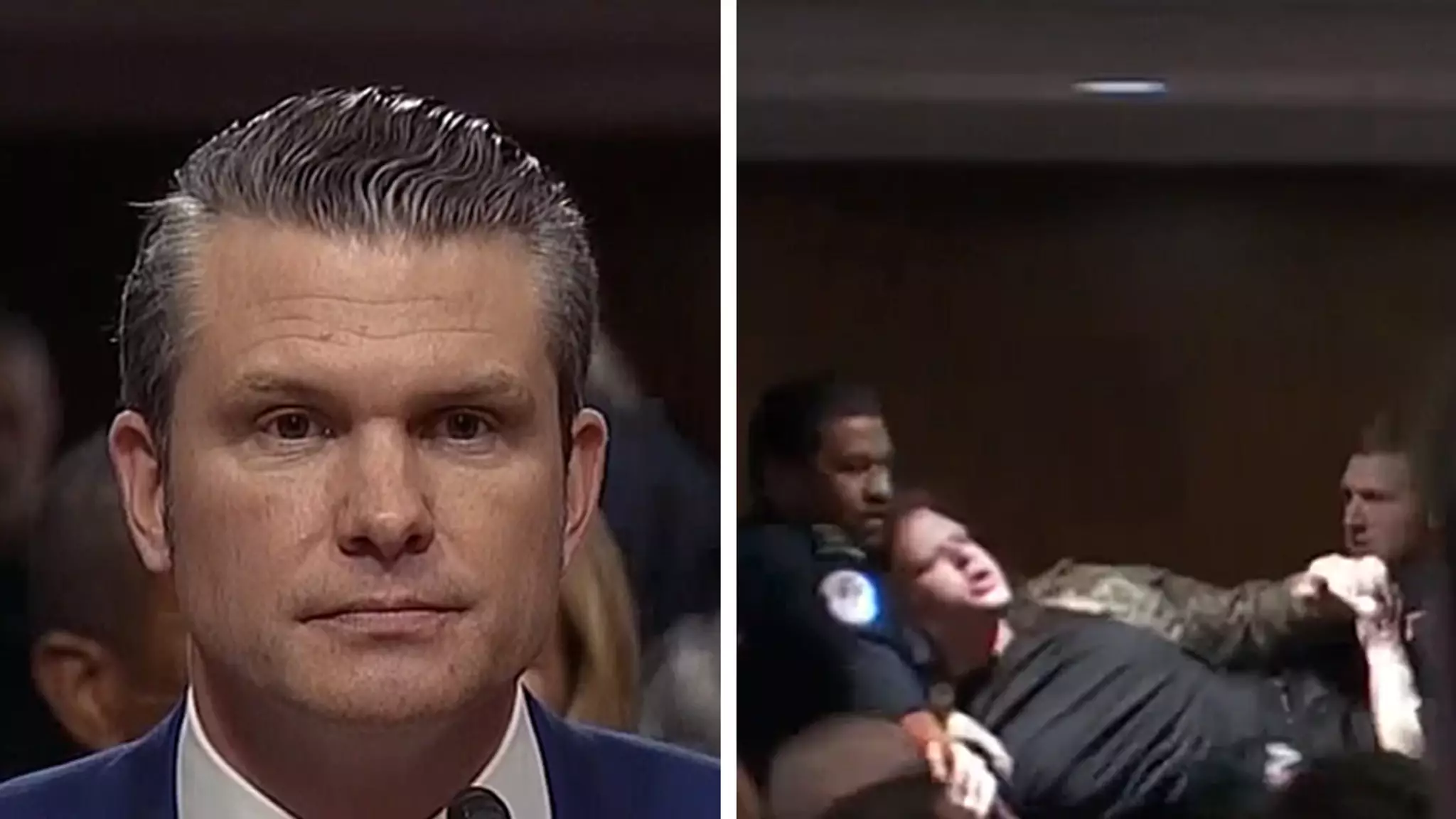The recent confirmation hearing for Pete Hegseth, nominated by former President Donald Trump to serve as U.S. Secretary of Defense, turned into a spectacle of unrest as multiple protests erupted within the hearing room. This chaotic atmosphere highlighted the polarizing nature of Hegseth’s nomination and the contentious debates surrounding military policy, especially concerning gender roles. Moments of dissent occurred just as Hegseth began expressing gratitude towards his supporters, illustrating the sharp divide in public opinion.
During Hegseth’s remarks, an elderly man took advantage of the moment to voice his discontent, labeling Hegseth as a misogynist. This incident was not an isolated event; it was followed by several other disruptions including a woman who vocally aired her grievances and a man who was notably escorted out by Capitol Police, creating a dramatic scene that underscored the tension in the room. Such protests serve as a reminder of the passionate opinions on both sides of the political divide regarding military service and gender equality.
Hegseth’s Calm Demeanor
Despite the escalated tensions and disruptions, Hegseth maintained composure, exhibiting a calm that suggested he was somewhat prepared for this backlash. His ability to pause and return to his points amidst the chaos speaks to a resilience typical of seasoned politicians, yet it also raises questions about the underlying issues that elicit such strong reactions. Hegseth’s outspoken views, particularly his controversial stance that women should not serve in combat roles, may have foreshadowed the outcry he experienced during the hearing.
Examining Controversial Views
Hegseth’s assertions regarding the alleged lowering of military standards for women resonate with a broader conversation about gender in the armed forces. His position has drawn criticism from various quarters, ultimately creating an environment ripe for protest. While proponents might argue that differing opinions enrich democratic discourse, opponents of Hegseth’s views argue that such perspectives undermine years of progress toward equality in military service.
The fallout from Hegseth’s confirmation hearing goes beyond the immediate disruptions; it serves as a litmus test for the future of military policy in the United States. How Congress and the public respond to his nomination may ultimately redefine prevailing attitudes toward women in combat and the standards expected of military personnel. Given Hegseth’s track record as a commentator, it remains to be seen whether he can translate his public persona into an effective leadership role in the Department of Defense, especially when faced with significant resistance.
In essence, Pete Hegseth’s confirmation hearing became more than a procedural formality. It transformed into a vital flashpoint for crucial societal debates on gender and military service, revealing the broader implications of his nomination and the path ahead for U.S. defense policy. The key now lies in whether compromise and constructive dialogue can emerge from the noise of dissent or whether divisions will continue to deepen.

